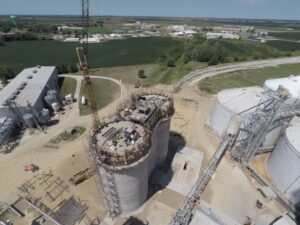What are the top 3 products produced in Iowa?


Iowa, a state synonymous with American agriculture, has long been a driving force in the nation’s farming industry. Its vast landscapes and rich soils provide the perfect conditions for growing an array of products that are integral to local and national markets and global food chains. The top three products produced in Iowa corn, soybeans, and pork highlight the state’s critical role in feeding and fueling the world. Each of these products showcases the expertise and efficiency of Iowa’s agricultural practices.
Corn: The King of Crops
Iowa’s most iconic agricultural product is corn, particularly field corn, which is distinctly different from the sweet corn consumed directly by humans. Field corn, which makes up the majority of corn produced in Iowa, is primarily used for animal feed, ethanol production, and as a raw material in various industrial products. With its deep, rich soils, Iowa provides ideal corn-growing conditions, leading the U.S. in its production almost annually.
The significance of corn in Iowa extends beyond its use as a commodity. It’s a staple in crop rotation practices, essential for managing soil health and maximizing yields of subsequent crops such as soybeans. Corn also plays a pivotal role in supporting Iowa’s economy through direct sales and its contribution to the biofuel industry. Ethanol from Iowa corn is a key element in the renewable energy sector, further enhancing the crop’s economic importance.
Soybeans: A Versatile Crop
Soybeans are Iowa’s second most significant product. This legume is vital for its ability to fix nitrogen in the soil, which helps maintain soil fertility and reduces the need for chemical fertilizers. Soybeans in Iowa are used in various ways, including for oil, which is processed and sold for cooking and industrial uses, and as meals for livestock feed, particularly for poultry and swine.
The global demand for soybeans, driven by markets in China and the rest of Asia, has positioned Iowa as a key player in international trade. Soybean production in Iowa not only supports local agriculture but also contributes to global food security. Furthermore, soybeans are increasingly crucial in producing biodiesel, a renewable energy source that complements the state’s corn-based ethanol production.
Pork: Leading the Livestock Sector
Iowa’s pork industry benefits from the state’s abundant corn and soybean production, which provides a local, cost-effective feed source, making pig farming more economical and sustainable.
The pork industry in Iowa is a major contributor to the state’s economy, employing thousands of residents directly and indirectly. The state’s commitment to modern farming techniques and animal health ensures that Iowa remains at the forefront of pork production globally.
Economic and Environmental Impact
The production of these three key products has significant economic and environmental implications for Iowa. Economically, agriculture is a primary driver of the state’s wealth, with corn, soybeans, and pork leading the way. These industries create jobs, support rural communities, and contribute billions of dollars to Iowa’s economy annually.
The scale of production presents both challenges and environmental opportunities. Iowa’s farmers are leaders in adopting conservation practices such as no-till farming, cover cropping, and precision agriculture. These practices help reduce soil erosion, enhance water quality, and improve the sustainability of farming operations.
The Future of Farming in Iowa
Looking forward, Iowa continues to invest in agricultural research and technology, seeking ways to improve yields, reduce environmental impacts, and adapt to changing market conditions and climates. Innovations in biotechnology, farm management software, and sustainable farming practices are key areas of focus that will likely shape the future of Iowa’s agricultural landscape.
Iowa’s top three products corn, soybeans, and pork reflect the state’s agricultural prowess and its strategic importance in the broader economic and environmental context. As Iowa continues to develop and implement innovative farming techniques, it will undoubtedly remain a central figure in both American and global agriculture.
